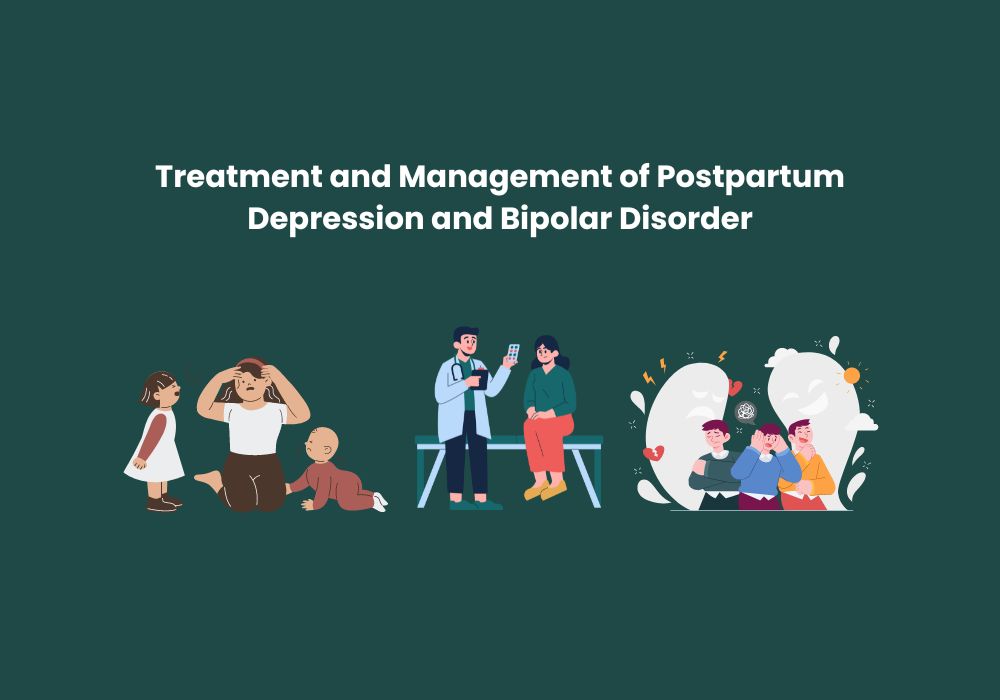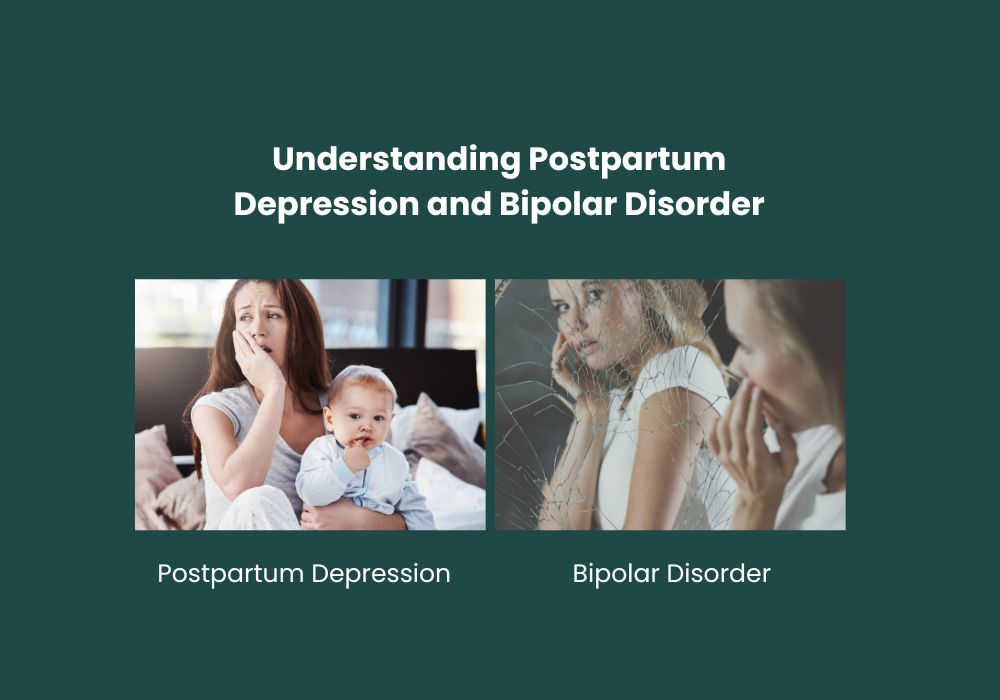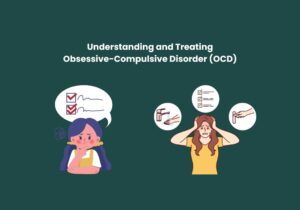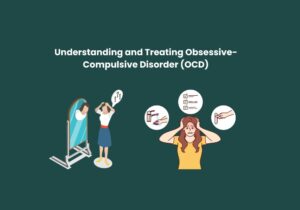The birth of a child is often depicted as a joyful event, but for many new mothers, it can also be a time of emotional turmoil. Postpartum depression and bipolar disorder are two mental health conditions that can significantly impact a mother’s well-being during and after pregnancy. Understanding these conditions, their symptoms, and available treatments is crucial for supporting affected individuals.
Before we get into the details of this topic, make sure to check out our previous post Understanding the Difference Between Major Depression. It helps you understand their unique characteristics.
Postpartum Depression (PPD)
Definition and Symptoms

Postpartum depression is a form of major depression that begins after childbirth. It can start within the first few weeks after delivery, but it may also develop up to a year postpartum. Symptoms of PPD include:
- Persistent sadness or low mood
- Loss of interest in activities once enjoyed
- Fatigue and loss of energy
- Difficulty bonding with the baby
- Feelings of worthlessness or guilt
- Changes in appetite and sleep patterns
- Thoughts of harming oneself or the baby
Causes and Risk Factors
Several factors can lead to the development of PPD, including:
- Hormonal changes: The rapid drop in estrogen and progesterone after childbirth can contribute to depression.Personal or family history of depression or other mental health disorders
- Stressful life events: Financial problems, lack of support, or relationship issues Complications during childbirth Lack of sleep and physical exhaustion.
Bipolar Disorder

Definition and Symptoms
Bipolar disorder is a mental health condition characterized by extreme mood swings, including manic (high) and depressive (low) episodes. Women with bipolar disorder are at a higher risk of experiencing mood episodes during the postpartum period. Symptoms include:
- Manic episodes: Elevated or irritable mood, increased energy, decreased need for sleep, grandiosity, rapid speech, and impulsive behavior.
- Depressive episodes: Similar to symptoms of major depression, including persistent sadness, loss of interest, fatigue, and feelings of worthlessness.
Postpartum Bipolar Episodes
Postpartum bipolar episodes can be particularly severe and may include:
Postpartum psychosis: A rare but serious condition characterized by hallucinations, delusions, severe mood swings, and confusion. It requires immediate medical attention.
Treatment and Management of Understanding Postpartum Depression and Bipolar Disorder

Postpartum Depression
1. Therapy:
- Cognitive-behavioral therapy (CBT): Helps you change negative thoughts and actions.
- Interpersonal Therapy (IPT): Works on improving your relationships and communication.
2. Medication:
- Antidepressants: Selective serotonin reuptake inhibitors (SSRIs) are commonly prescribed and are generally considered safe for breastfeeding mothers.
3. Support Groups:
- Joining support groups can provide emotional support and practical advice from other mothers experiencing PPD.
Bipolar Disorder
- Medication:
- Mood Stabilizers: Lithium, valproate, and lamotrigine are commonly used to manage bipolar disorder.
- Antipsychotics: These may be prescribed for severe manic or mixed episodes.
2. Therapy:
- Psychoeducation: Helps individuals understand their condition and recognize early warning signs of mood episodes.
- CBT and Family Therapy: Can improve communication and support within the family.
3. Monitoring:
- Regular follow-ups with a healthcare provider to monitor mood and adjust treatment as needed.
Seeking Help for Postpartum Depression and Bipolar Disorder
Seeking help for postpartum depression and bipolar disorder is crucial. If you or someone you know is struggling with postpartum depression or bipolar disorder, it’s essential to seek professional help. Acting early can greatly help in controlling symptoms and making life better. At Peniel Psychiatry, our team of experienced professionals is dedicated to providing comprehensive care tailored to each individual’s needs. Contact a healthcare provider for support and treatment options, including therapy and medication. Acting early can greatly help in managing symptoms and improving overall well-being.
Conclusion
Postpartum depression and bipolar disorder are serious conditions that require attention and appropriate treatment. With the right support, people can manage their symptoms and live fulfilling lives. If you need assistance, don’t hesitate to reach out to Peniel Psychiatry for expert guidance and support on your journey to recovery.




